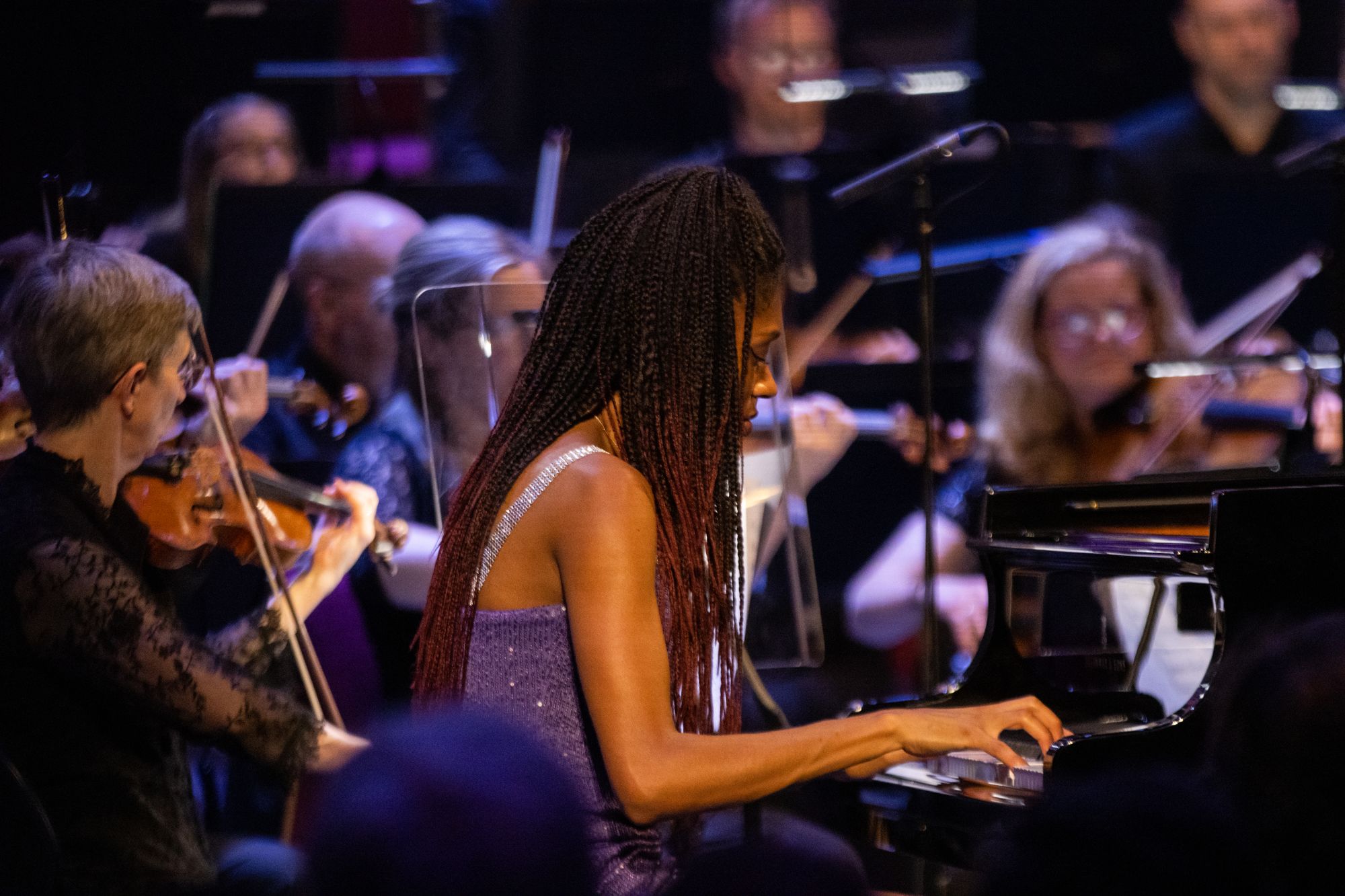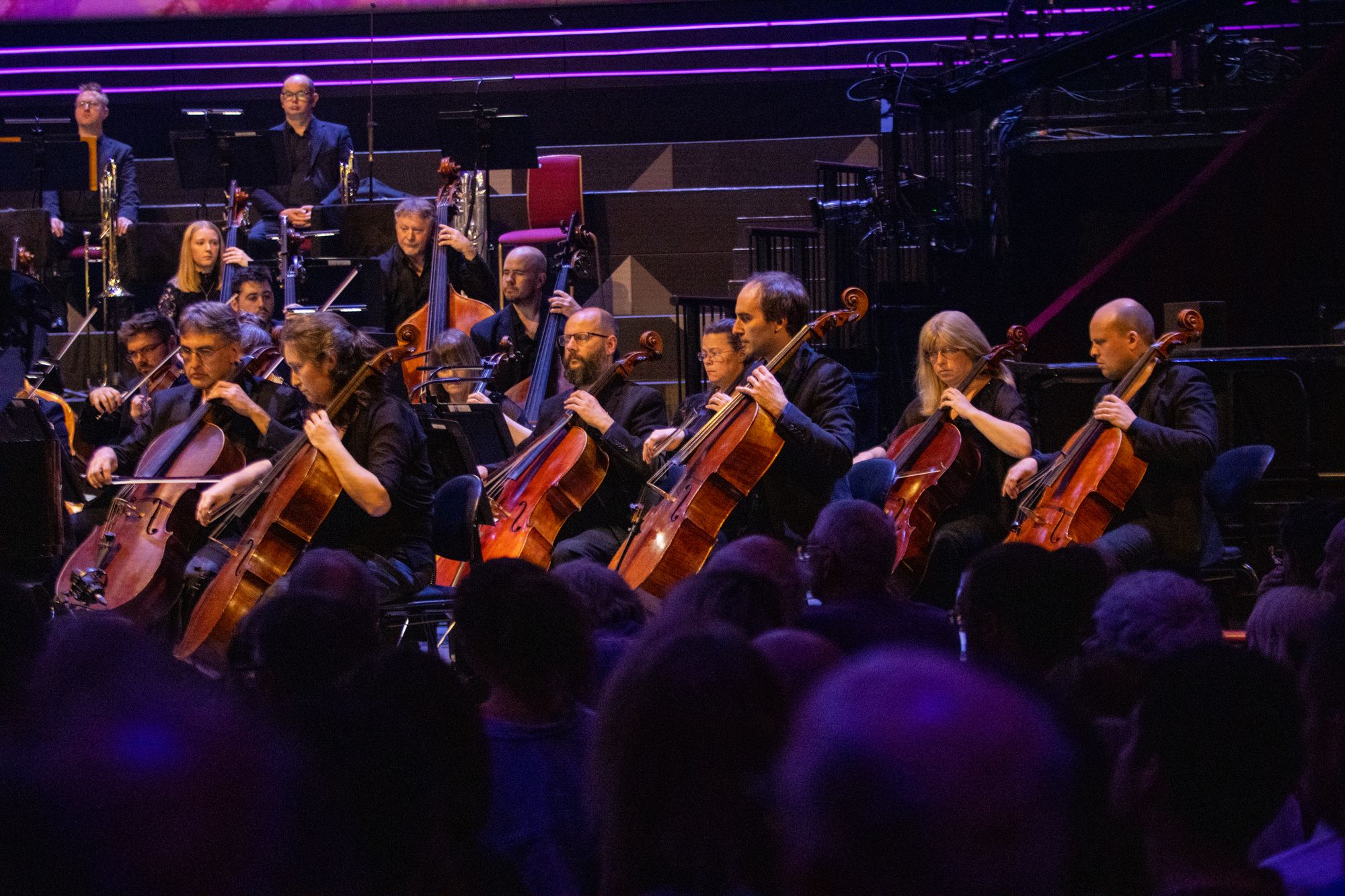Prom 22 review: Prokofiev and Tchaikovsky via Wales!

Prokofiev, Tchaikovsky Isata Kanneh-Mason (piano); BBC National Orchestra of Wales / Ryan Bancroft (conductor). Royal Albert Hall, London, 1.8.2023
Prokofiev Piano Concerto No. 3 in C major, Op. 26 (1917-21)
Tchaikovsky Symphony No. 5 in E minor, Op. 64 (1888)
A relatively short Prom, this one, and a 7 pm start due to the late-night prom. Short, but telling: Ryan Wigglesworth is clearly performing miracles in Wales. The BBC NOW was on magnificent form, whether co-creating Prokofiev’s Third Piano Concero with Isata Kanneh-Mason, or shining in Tchaikovsky.
It is good the Prokofiev begins with a clarinet solo, as Peter Sparks, the Principal Clarinet of BBC NOW, was on fine form throughout the night (Tchaikovsky Fifth is famous for its horn solo in the second movement, but there is plenty of clarinet in there, too). Perhaps, when at the end of the first phrase, the second clarinet enters on a unison while the first moves upwards, creating a semitone clash, that aspect could have been relished just a touch more, but the overall eloquence was most appealing. As was the unanimity of the high strings’ response. As to Kanneh-Mason, there is no doubting the fleet-fingered nature of her response (her legerdemain is certainly not in doubt – not after her performance of Mendelssohn’s First Piano Concerto with the London Mozart Players at the Cadogan Hall in 2021, anyway: review).
It was, however, Ryan Bancroft’s handing of the orchestra and his long-range vision that ensured the first movement’s success, and its major, radiant (almost filmic) arrival point carried much force because of it. Similarly, the opening of the second movement was beautifully disciplined. One listened in awe at Kanneh-Mason's super-even left-hand trill, but again it was the orchestral detail that registered, particularly a definably glacial beauty Bancrosft seemed to be able to create. The finale was the Achilles heel of the performance, rather low in voltage when it should fly.

As an artist, Isata Kanneh-Mason is not yet fully formed. I felt this in her Queen Elizabeth Hall recital (also 2021: review), and there were hints of it here in her Prokofiev. Anyway, there was no encore (one assumes because of the evening’s later concert, as the audience reaction was very appreciative).
As to the Tchaikovsky, this was no war-horse – the music sounded freshly minted from first to last, one of the finest performances of this work this writer has ever heard. From the dark clarinets of the opening to the taut dotted rhythm of the Allegro con cnima, taut like a coiled spring, full of potential energy, this was exceptional. The playing from all quarters of teh orchestra was impeccably disciplined, the movement climax, like those in the Prokofiev, perfectly prepared thanks to Bancroft’s long-term harmonic hearing. The actual sound of the orchestra, too, carried real depth: Bancroft opted for the traditional violins to conductor’s left, then viola and finally cellos to the right – but he placed the double-basses at the back, behind the violas, grounding the sound chthonically while also aiding the upper strings’ tuning (without adequate grounding teh tendency is to play sharp).

All credit to Principal Horn Tim Thorpe for a superbly sensitive solo in the second movement, as eloquent in its conversations with woodwind as it was in its initial solo exposure. Bancroft’s embracing of a full dynamic spectrum was here a major factor in the movement’s climactic moments; and how the ensuing silences and string pizzicatos spoke. . The third movement held some timbral surprising (the horn stoppings!) and some superb bassoon solos, but it was Bancroft’s reframing of teh fiale that was most arresting. If Tchaikovsky had ever written the Elgarian indication ‘noblmente,’ it would have been at this movement’s opening. The Allegro vivace was super-fast and viscerally exciting horn s positively spitting their accents at the audience. Only one criticism: while the big statement of the tune was big-boned and big-hearted, the trumpet fanfares that punctiate it wer erather half-hearted. A small quibble – this was a simply superb pefrormance, one from which this listener at least emerges both refreshed and elevated. Clearly amazing things are happening in Wales – long may the orchestra’s status remain sacrosanct.
